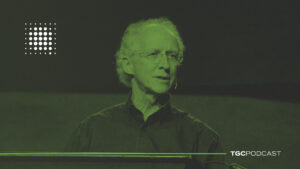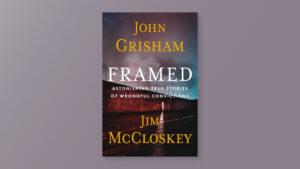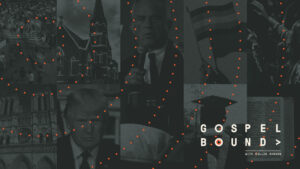Don Carson explores the role of systematic theology in preaching. He discusses how it interacts with biblical theology to create a holistic understanding of the Christian faith and how it addresses various theological issues over time. This segment of the series focuses on the integration of systematic theology into preaching.
Yesterday we began with biblical theology, and then the points I listed under systematic theology, to refresh your mind, were:
- At its best, systematic theology synthesizes the whole. It melds together. It authorizes comprehensive synthesis.
- It is less sensitive than biblical theology to corpus distinctions, but it is more passionate in constructing the whole and should not be despised.
- Ironically, it is more likely to be culturally located, culturally dependent, than biblical theology.
- The best systematic theology is constructive systematic theology.
- The best systematic theology forces us to think hierarchically.
- Systematic theology should be grounded and integrated with biblical theology.
- Systematic theology is crucial in worldview formation.
I’ll just say a word about the last one and then we’ll open it up for questions or comments. There is an awful lot of Christian thinking that is bitty. It picks on a bit of something here and a bit of something there but does not think how a cohesive system should structure our values: what we do with our money, what we do with our time, our direction in life, how we look at the world, how we look at art, how we look at music, how we look at rearing children.
These are not things to be taken bit by bit from a book we picked up here or a sermon we picked up there. Ultimately these things become powerful in our lives if we can put them together into a coherent system so that there’s a structure of interrelated ties that puts our eschatology together with our understanding of Christ with our understanding of sin with our understanding of what holiness looks like, and so on.
That will shape how we look at the poor and how we look at the Word of God. What we’re looking for is worldview formation. As long as our Christians are thinking eclectically all the time, they will be inclined to be fairly immature. You get more stability in a community, in an individual Christian, once things are coming together in a wholeness of understanding.
That’s really what systematic theology is. It’s putting things together into a system. If you think of systematic theology along those lines rather than along the lines of a fat tome by Berkhof or something like that (that is, it’s a way of thinking systemically about the revelation of God and all that flows from it) then you understand how important careful systematic theology is to worldview formation.
If you want to raise some questions now, this is an appropriate time to do so. What I’m then going to offer is just a handful of practical points for the preacher that flow out of what systematic theology is.
Male: One of the questions was about helping us to think hierarchically. The answer might be the engagement of biblically theology with systemic theology. How do we then make calls ourselves on what is hierarchically important? Like, is the doctrine of providence important compared to the doctrine of atonement? How do we make that call?
Don Carson: That’s a crucial question. The factors that go into it are not only biblical, they are also generated in part by what is important in our generation. Now this is going to come up on another front when we consider historical theology, but at certain periods in the church’s history, for example, Christology has been the dominant area of dispute (third and fourth centuries).
At other times, it’s been justification that’s been a dominant area. Luther used to say, “He who affirms the truth, save in the one area where it is being denied, is a heretic.” It’s a clever way of saying that in certain generations some things are signals that are bringing whole structures of thought with them.
From one level, to think that the Reformation should’ve started because of indulgences? How stupid is that? You split the whole church over Tetzel selling a few silly little doodahs? Yet it became the trigger, in fact, for thinking about authority and justification and what salvation really is. It became the trigger for entire structures of thought. It became something that was transcendentally important.
Let me stick my neck out here. Imagine splitting the church over homosexuality, churches that won’t be split over bishops that deny the deity of Christ or the resurrection from the dead. How ridiculous is that?
Yet, having said that, it becomes a trigger for a bigger issue in which everybody is now facing the question of, “Will we live under the authority of the Word of God or will we not?” It becomes the trigger for something that’s really massive, but that means that you can’t back off and give an arbitrary set of assigned numbers, from one to ten, on “How important is Christology?”
Involved in Women’s Ministry? Add This to Your Discipleship Tool Kit.
 We need one another. Yet we don’t always know how to develop deep relationships to help us grow in the Christian life. Younger believers benefit from the guidance and wisdom of more mature saints as their faith deepens. But too often, potential mentors lack clarity and training on how to engage in discipling those they can influence.
We need one another. Yet we don’t always know how to develop deep relationships to help us grow in the Christian life. Younger believers benefit from the guidance and wisdom of more mature saints as their faith deepens. But too often, potential mentors lack clarity and training on how to engage in discipling those they can influence.
Whether you’re longing to find a spiritual mentor or hoping to serve as a guide for someone else, we have a FREE resource to encourage and equip you. In Growing Together: Taking Mentoring Beyond Small Talk and Prayer Requests, Melissa Kruger, TGC’s vice president of discipleship programming, offers encouraging lessons to guide conversations that promote spiritual growth in both the mentee and mentor.





















